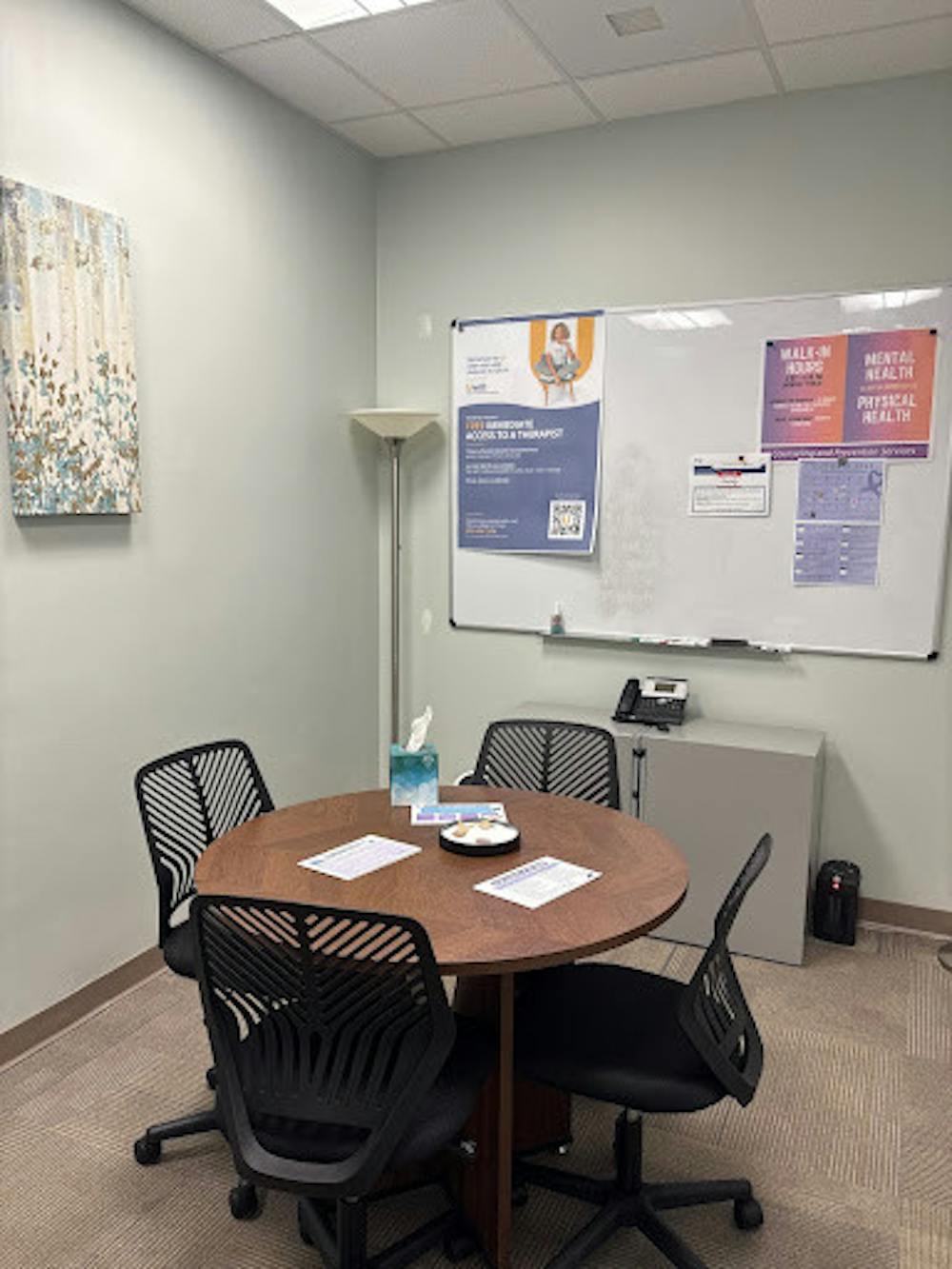By Bethany Kwak
Correspondent
When Susan Gradl joined the College’s Counseling and Prevention Services team in September 2022, the campus had just one teletherapy room. This room was a cramped office space used for only two hours a week. With the rise of teletherapy and the College’s partnership with the online mental health service Uwill, Gradl quickly recognized the need for more accessible spaces where students could meet with their virtual counselors.
“I really want to step up our game on this,” Gradl said she recalled telling Beverly Mason, the director of CAPS. Mason agreed, and since then, Gradl has spearheaded the creation and maintenance of multiple teletherapy rooms in the Student Health Services wing.
Located in Eickhoff Hall suite 107, CAPS teletherapy rooms now include four to five offices used throughout the school day, providing students with quiet, private spaces for virtual counseling. Gradl transformed every available office into teletherapy rooms, and she now coordinates many sessions per week. These include intermittently used offices, intern spaces and a conference room.
Each room is equipped with comfortable seating, reliable internet access and a white noise machine outside the door for confidentiality. Some rooms contain computers and comfort features like tissue boxes and mini Zen gardens.
Gradl takes care to make each space warm and inviting, decorating with rugs, artwork and soft furnishings.
“I try to make sure every room looks neat,” she said. “Not cluttered, because my mind gets cluttered if I'm in a cluttered space.”
For many students, these rooms have become a safe haven. Those who share dorms, live off campus or schedule teletherapy sessions between classes now have a comfortable, convenient and confidential solution.
“We’re having over 400 hours of teletherapy rooms used per semester,” said Mason. “And on some days — oftentimes it’s Wednesdays because classes are fewer for students — we can have 17 student hours use per day.”
Many students enter college already having a telehealth counselor, and CAPS encourages them to continue with their established therapists, which reduces the need to start with a new counselor. This also benefits CAPS as a whole. When students choose teletherapy over the college’s in-person counseling, it reduces the workload for clinicians and overall cost while still supporting students.
CAPS maximizes these rooms for other services as well. They plan to transform one room into a sensory-friendly space for neurodivergent students, complete with calming music, fidget tools and more.
“We're trying to expand not only the teletherapy rooms but also provide a space for students who are feeling overwhelmed in the minute to just kind of come here and sit,” Gradl said. “We're just trying to use our space as much as we can.”
Above all, Gradl said she hopes to create a welcoming space for students.
“We try to make it as accessible as possible,” she said. “I'll get [feedback from students] and then we'll just do what we can to accommodate. Because that's what we're supposed to do here, right? . . . Any student feedback that we can get where we can make people feel more comfortable . . . we're so open to that.”
Students interested in reserving a teletherapy room can email caps@tcnj.edu, call 601-771-2247 or visit the office at Eickhoff Hall. Reservations for the entire semester may be requested but are not guaranteed. CAPS is open on weekdays from 8:30 a.m. to 4:30 p.m.







